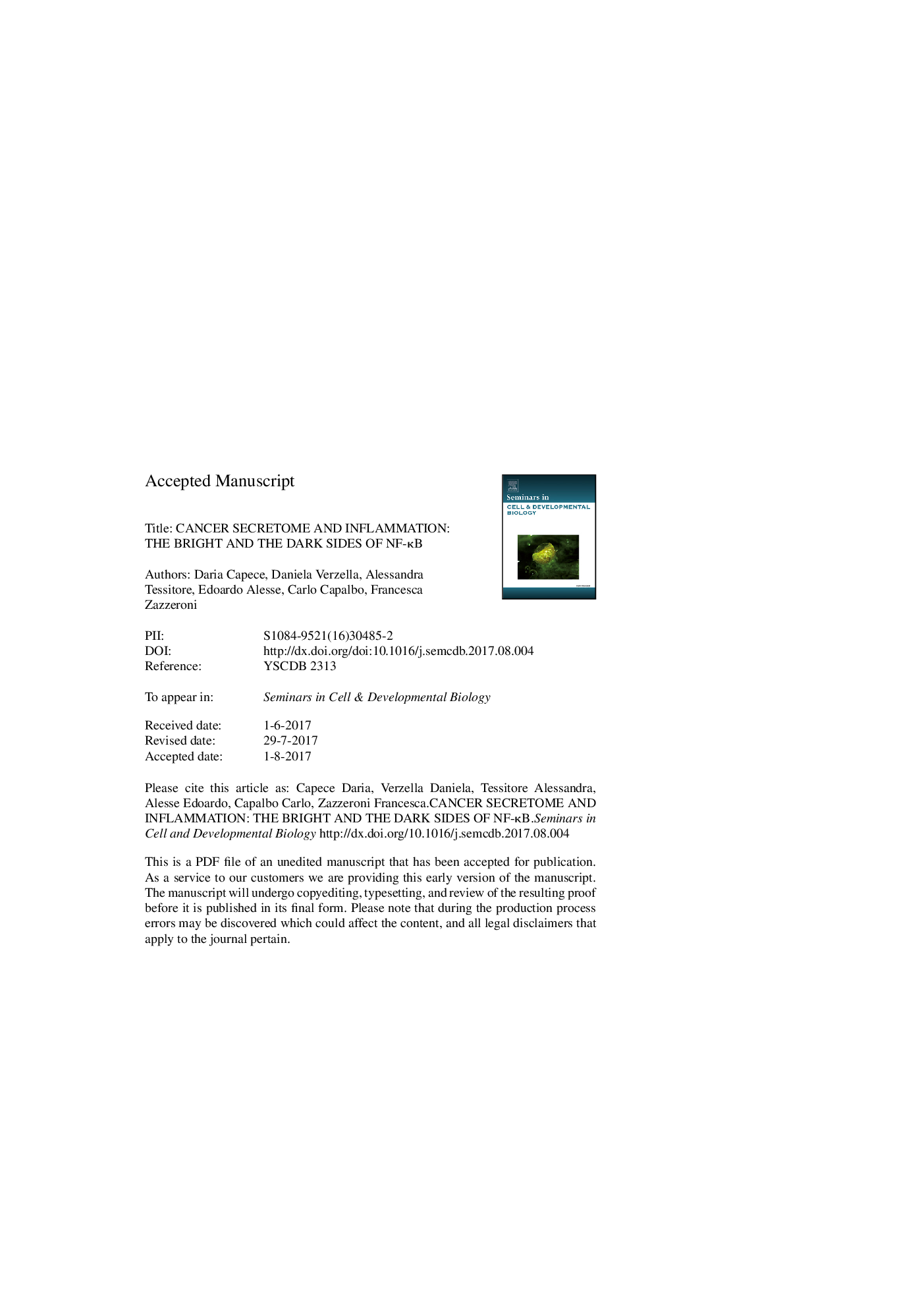| Article ID | Journal | Published Year | Pages | File Type |
|---|---|---|---|---|
| 8479632 | Seminars in Cell & Developmental Biology | 2018 | 17 Pages |
Abstract
Tumour promoting inflammation is widely recognized as a hallmark of cancer. The source of this chronic inflammation in cancer has been ascribed to the progressive activation over time of immune cells, mostly of the innate arm of the immune system. However, recent evidence has shown that chronic inflammation may also derive, at least in part, from senescent cells. Hence, due to the prominent role of inflammation in cancer, the cancer secretome definition includes all the secretory factors ensuing from the crosstalk between the cancer cell and the tumour microenvironment. The mechanistic basis underlying the paracrine signalling between the cancer cell and the surrounding tumour microenvironment in malignancy have been widely investigated by using in vivo models of cancers, thus identifying the NF-κB transcription factor as the molecular hub linking inflammation and cancer. In this review, we highlight the roles of NF-κB in regulating the inflammation-derived secretome emanating from immune and senescent cells, with a special focus on the bright and the dark sides of their pro-inflammatory signalling on tumorigenesis.
Related Topics
Life Sciences
Biochemistry, Genetics and Molecular Biology
Cell Biology
Authors
Daria Capece, Daniela Verzella, Alessandra Tessitore, Edoardo Alesse, Carlo Capalbo, Francesca Zazzeroni,
